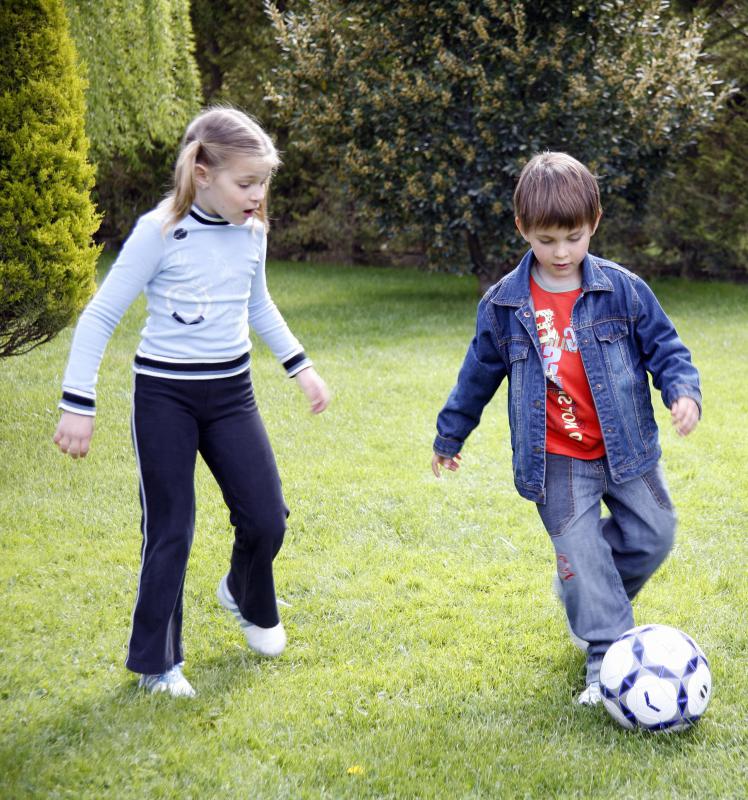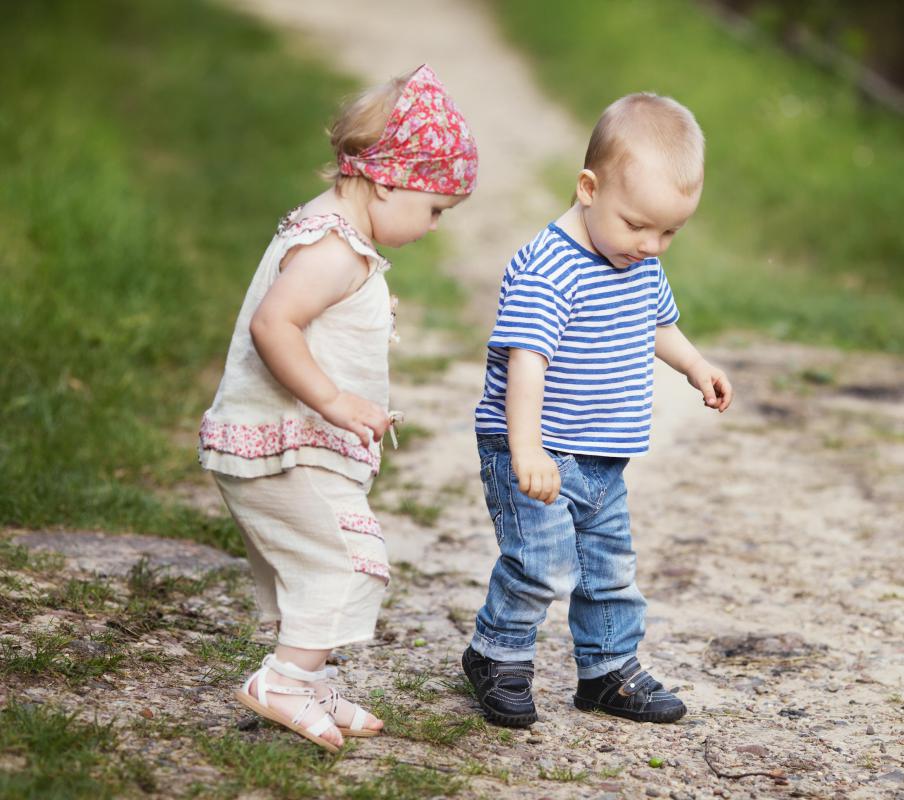At WiseGEEK, we're committed to delivering accurate, trustworthy information. Our expert-authored content is rigorously fact-checked and sourced from credible authorities. Discover how we uphold the highest standards in providing you with reliable knowledge.
What Factors Affect Personality Development in Childhood?
Factors that influence personality development in childhood typically include genetics, family environment, and social environment. Psychologists studying childhood personality development believe that some inherent aspects of someone's personality may not be related to environmental or genetic factors. People from the same family, raised in the same environment and culture, can often develop vastly different personalities. Experts do not fully understand why this should be so. While environmental and genetic factors may not be the only ones related to personality development in childhood, they are, however, generally acknowledged as important.
The culture in which a child is raised can be one of the environmental factors contributing to the development of personality. Other factors in childhood personality development can include the quality of care a child receives from parents. While some aspects of a child's personality may be inherent from birth, the feedback a child receives from parents, caregivers, and siblings can contribute to the formation of his personality. Birth order may also contribute to personality development in childhood. Older siblings may be more studious and responsible, while younger siblings may be more carefree and boisterous.

Many theories about the personality development in childhood postulate that social and gender conditioning can influence a child's personality. Girls and boys are generally treated differently by their parents and others, depending on the larger society's notions about appropriate gender roles. Children will generally form conclusions about the world and their place in it based on things they observe and experiences they have, and these conclusions can ultimately influence the child's character. Parents may typically influence the development of personality in childhood by the way they treat the child. The quality and nature of parental discipline and personal interaction is believed to have a strong effect on childhood personality development.

Very young children will often seek to imitate their parents or other caregivers. They will typically take their caregivers' beliefs and moral values for their own. Parental personality traits can therefore be a strong factor in the development of a child's personality.
Personality is typically defined as a collection of character traits that, combined, serve to make one a unique individual. Personality development in childhood typically begins at around two years of age, when the child begins to develop self-awareness. Most experts believe that a child's basic personality is fully formed by the age of six.
AS FEATURED ON:
AS FEATURED ON:

















Discussion Comments
Why are we trying to explain personality development with just one factor? It's not just genes or just environment that affects children's personality, it's a combination of both and possibly other factors as well.
@fBoyle-- I think that's because of genes though. Siblings don't end up with the same exact genes. That's why siblings look different and have physical features from different family members. Similarly, I think that we also end up with different personality traits from different family members.
For example, my sister, is a lot like my uncle in the way she thinks and acts. I, on the other hand, resemble my grandmother in the way I talk and act. It can't be the environment because my grandmother passed away when I was young. But all my relatives say that I remind them of her because of how I speak.
So our genes have to do with more than just our physical appearance. I think we also inherit our personality. Everyone must have heard the saying "the apple doesn't fall far from the tree."
What the article author said is true. Even though people have the same genes and grow up in the same environment, they can turn out very different. My brother and I lived together until college but we are so different from one another. We're like opposites. His worldview and his likes are extremely different from my worldview and my likes. I can't understand how this can be. Our parents are the same and they raised both of us.
That's taking on a lot, isn't it? As a parent, it's been my experience that environment and genetics both play a big role in shaping a child's personality. How much those factors contribute is hard to say and that's why raising kids is so blasted hard. It's typical to see two siblings that were raised in the same household turn out radically different.
Post your comments